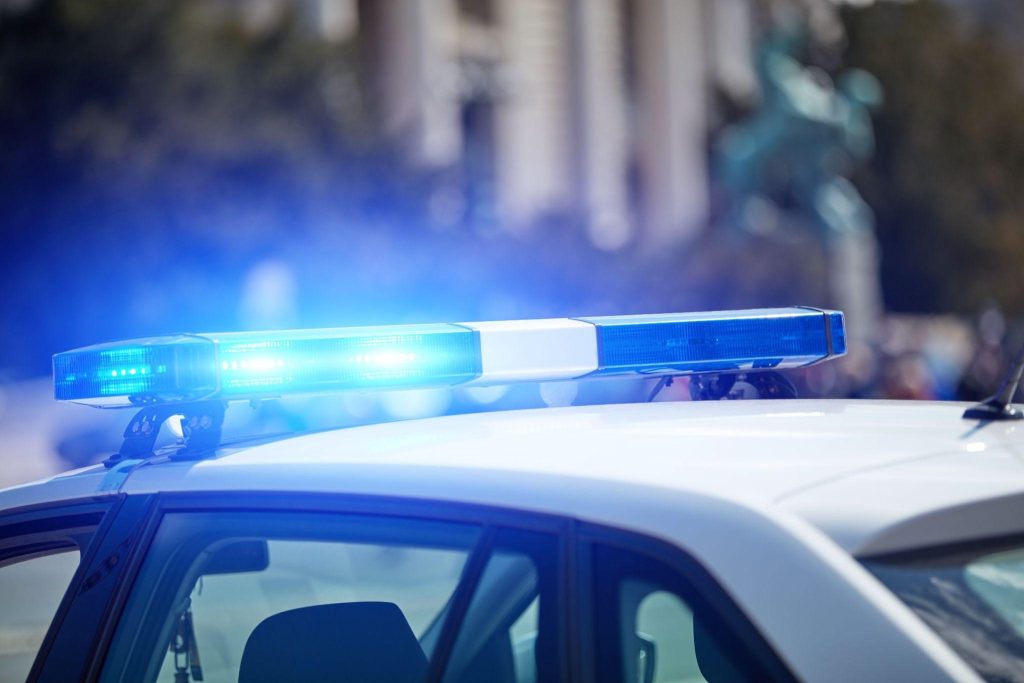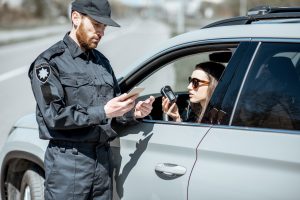
We all know the feeling of seeing the flashing blues in our rear-view mirror while driving. For most of us, feelings of anxiety and/or concern immediately result when we realize we are being pulled over by police. However, there’s no need to worry. Understanding the process and what you will be asked of you can help keep you calm.
Suspected Driving under the Influence (“OUI”)
If the police stop you at night, particularly on a weekend, regardless of the reason you are pulled over, you can expect to be asked: “How much have you had to drink tonight.” This question is routinely asked of drivers during traffic stops, even if the officer has no reason to suspect that you have in fact been drinking. You should always be polite to the officer and avoid any attempts to joke or make light of the situation. Officers often note such conduct as evidence of intoxication.
Tip: Because your movements will be observed and analyzed by the police officer, it is not a bad idea to keep your registration and proof of insurance together in your glove box or in an otherwise easily accessible location. I cannot tell you how many police reports I have read in which an officer notes that a suspect “fumbled” for his or her license or seemed uncoordinated in obtaining these items.
If the officer concludes that there is reasonable suspicion to believe that you have been driving under the influence, you will be asked to step out of the vehicle and participate in field sobriety tests.

Field Sobriety Tests
The three field sobriety tests that are most frequently administered, and that are authorized by the National Highway Traffic Safety Administration, are: (1) the horizontal gaze nystagmus (HGN) test, (2) the walk and turn, and (3) the one-leg stand. If you are wearing uncomfortable shoes, ask the officer for permission to take the field sobriety tests barefoot.
HGN: During the HGN test, you will be asked to watch the officer’s pen (or something similar) while he or she moves the object in front of you. The purpose of this test is to determine whether your eyes show signs of involuntary rapid movement, or nystagmus, while you are attempting to track the object used by the officer in conducting the test without moving your head.
Walk and Turn: The “walk and turn” is a test in which you will be asked to walk an imaginary line, taking a specific number of steps before pivoting, and walking back to the starting point.
One-Leg Stand: The one-leg stand test asks the participant to stand on one leg with his or her other leg elevated while counting until the officer instructs you to stop.
For each test, the police officer will give you specific instructions on what to do. It is important that you listen closely, ask any questions you have before taking the test, and follow all instructions.
The officer may ask you to rate sobriety on a scale of one to ten, with one being completely sober and ten being completely intoxicated. Many people make the mistake of believing that their answer should correlate with the number of drinks that he or she has consumed. This is a mistake. This “self-assessment” question is, in essence, a trick question because the only correct answer is one. If you provide any answer other than one to this question, it could be treated as an admission, which could result in an OUI charge, even if you later take the Intoxylizer test and the result indicates that your blood alcohol level is below .08.
Did You Know: Many people mistakenly believe that to be guilty of OUI in Maine, the state must prove that your blood alcohol level is a .08 or higher. Not true. The state need only prove that you are impaired to the slightest degree. Depending on the circumstances, a person may consume two drinks over an extended period of time and be completely sober, in which case the correct answer to the self-assessment question is one.

Blood, Urine, or Breath Test
If you are fortunate, the officer will release you after you have completed the field sobriety tests. There is a chance however, the officer will take you into custody and transport you to the police department or the jail for the purpose of administering a test of your blood alcohol content. The officer will have the choice of requesting a urine, blood, or a breath test using the Intoxylizer. Most often, the officer will elect to administer an Intoxylizer test.
Did you know that if you refuse to submit to these tests, you could have the following consequences: (1) Under Maine law, the refusal to submit to a blood or breath test will result in an automatic suspension of your license for a period of time that is longer than the license suspension imposed for an OUI conviction;
(2) The State can prosecute you for driving under the influence even without a blood, urine, or breath test;
(3) Your refusal to submit to a blood, urine, or breath test will be used against you at trial; and
(4) If you are ultimately convicted, you will face tougher penalties than you would have otherwise faced as the refusal will count as an aggravating factor.
Remember, if you are stopped for driving under the influence, try to cooperate with the officer to the best of your ability. If you are ultimately charged with OUI, it is vitally important that you consult with an attorney that has experience in OUI defense immediately. If you wait to contact an attorney until a week before your trial, your attorney’s ability to defend you will be limited.
OUI is a specialized area of law. While many attorneys “handle OUI cases on occasion,” there are few that have the requisite training, experience, and understanding of the complex issues involved to provide you with a formidable defense. If you have questions about the nature of OUI charges or other criminal charges, learn more on our website. Or, if you believe you have been charged with an OUI unfairly, contact Rudman Winchell directly.
By a Rudman Winchell Attorney.
